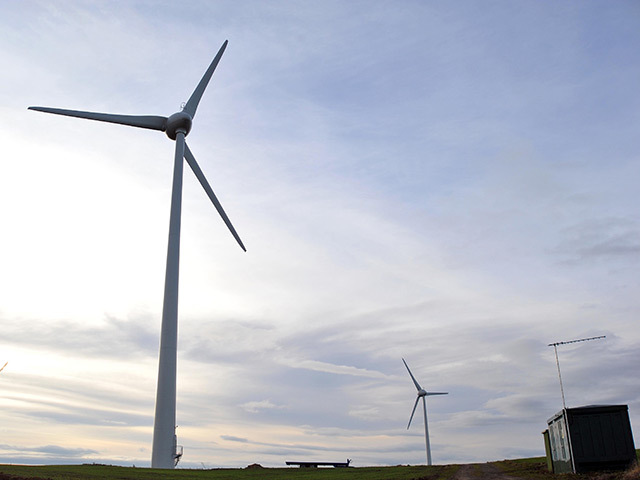
Environmental campaigners have hailed the “transformation” in electricity production after figures showed power generated in Scotland has a significantly smaller impact on climate change when compared to the UK average.
The Scottish Government’s “leadership on renewables” was hailed by WWF Scotland as a key factor in the reduction in carbon dioxide (CO2) emissions produced as a result of generating each kilowatt hour (kWH) of energy.
The most recent figures show that in 2014, electricity generated in Scotland resulted in 196 CO2/kWH, compared to 400 for the UK as a whole.
In addition, the climate change impact of electricity production in Scotland dropped by almost two-fifths (38%) between 2010 and 2014, while the UK saw a reduction of 12% over the same period.
WWF Scotland climate and energy policy officer Fabrice Leveque said: “Thanks to the Scottish Government’s leadership on renewables policy, the climate change impact of producing electricity in Scotland has fallen rapidly and is now half that of the whole of the UK.
“The transformation in the way we produce our power is helping Scotland harness the many economic and social benefits of shifting to a zero-carbon future.”
But he added: “Electricity accounts for just one quarter of our energy use, so if we’re to meet our future climate targets, the Scottish Government must build on the progress made in the electricity sector to set a 50% renewables target for all our energy needs, across electricity, heat and transport sectors, by 2030.”
Heating and transport needs account for three-quarters of energy usage in Scotland, with low-carbon heat expert Dave Pearson of Star Renewable Energy suggesting the installation of gas boilers should be halted in a bid to provide “cleaner, cheaper heat” in homes and buildings.
“The Scottish Government should bring forward bold policies to make sure we are installing the right future-proof technologies in our buildings,” he said.
Colin Howden of Transform Scotland said emissions produced by transport had “barely declined” from the level they were at in 1990.
He added: “We need to level the playing field so that public transport, cycling and walking can compete with the private car, and have a long-term strategy that clearly shows how all transport will shift over to low-carbon.”
Labour environment spokeswoman Claudia Beamish said: “This analysis shows the real and positive impact renewables have on our national carbon footprint. I welcome the achievements we have seen so far in decarbonising our electricity production.”
But she added: “Our future targets for greenhouse gas reductions will be increasingly difficult to meet unless the Scottish Government takes bold steps in the heavy emitting sectors – heat, transport and agriculture.
“2017 is brimming with opportunities to improve the contribution to emissions reduction of these sectors, for genuine community engagement, and greater climate aspiration.”
Recommended for you
